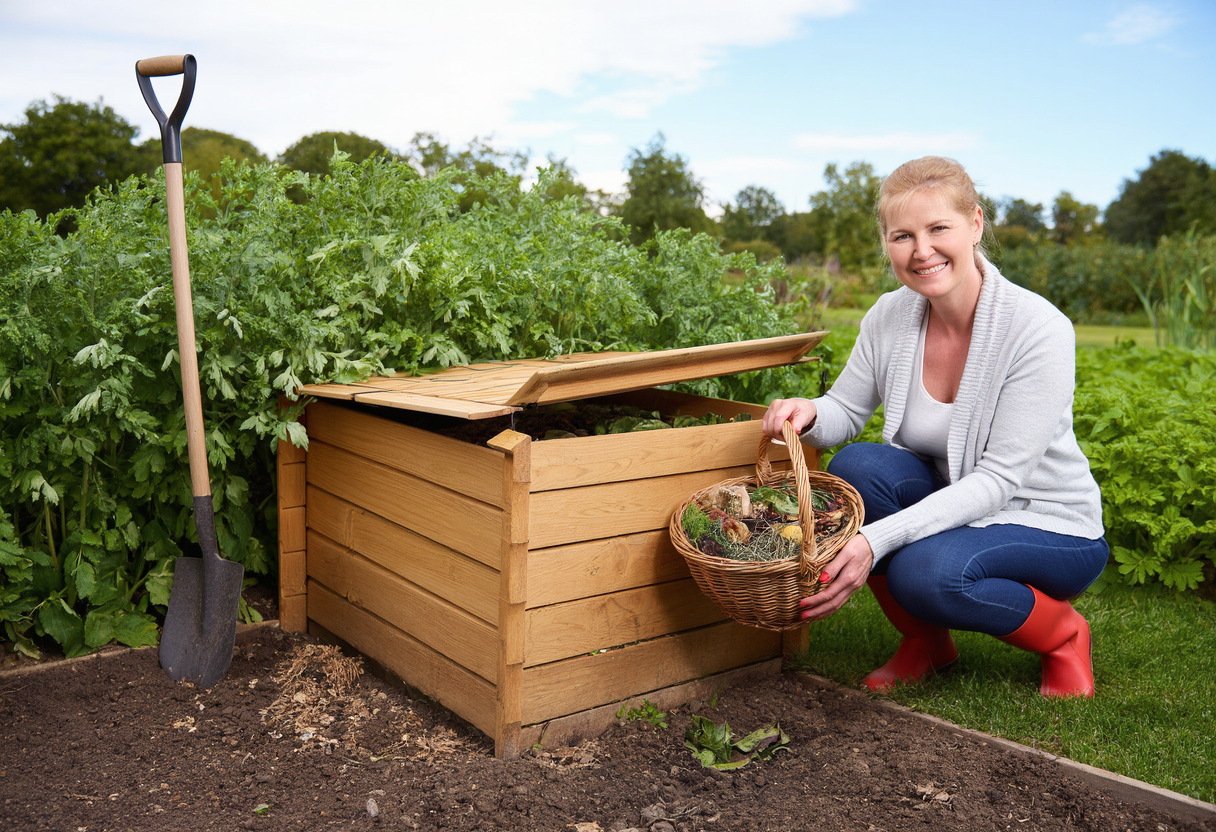Transform Your Waste: Exploring Home Composting Solutions for a Greener Future
Home composting solutions are becoming increasingly popular as more people seek to reduce their ecological footprint. This article delves into various home composting techniques, the environmental benefits of composting at home, and practical tips for implementation. Discover how to turn kitchen scraps into nutrient-rich compost while minimizing waste.
Understanding Home Composting Solutions
Home composting solutions provide an effective way for households to manage organic waste and reduce landfill contributions. These solutions range from simple backyard compost bins to sophisticated indoor composting systems. Understanding the different types of composting—such as hot composting, cold composting, and vermicomposting—can help individuals choose the most suitable method. Moreover, the benefits of composting include enriching soil quality, reducing greenhouse gas emissions, and promoting sustainable gardening practices. By adopting home composting solutions, homeowners can transform their organic waste into valuable resources, closing the loop in their waste management systems. Notably, education on composting methods is crucial for maximizing efficiency and effectiveness in waste reduction.
Environmental Impact of Home Composting Solutions
The environmental impact of home composting solutions is profound. By composting organic materials, households can significantly decrease their waste footprint while contributing to soil health. According to recent studies, composting can divert nearly 30% of household waste from landfills. The resulting compost enriches the soil with essential nutrients, promoting healthy plant growth and enhancing biodiversity. Furthermore, home composting solutions help sequester carbon, combating the effects of climate change. However, it's essential to consider the composting process's balance; an ideal mix of carbon-rich and nitrogen-rich materials is crucial for efficient decomposition. Therefore, residents should be educated about the types of kitchen and garden waste suitable for composting.
Practical Tips for Implementing Home Composting Solutions
Implementing home composting solutions doesn't have to be daunting. Start by selecting an appropriate composting system—the choices range from simple piles in the backyard to sophisticated tumblers. A well-structured compost pile should have a balance of brown (carbon) materials, such as dry leaves and straw, and green (nitrogen) materials, like vegetable scraps and coffee grounds. Turning the pile regularly aerates the compost, hastening the decomposition process. Additionally, residents should be aware of the materials that should not be included in their compost, such as meat, dairy, and oils, to avoid attracting pests. Simple actions, such as keeping a small bin in the kitchen for scraps, can make the composting process easier and more manageable.
Home Composting Solutions: A Cost-Effective Approach
Home composting solutions represent a cost-effective approach to waste management. By recycling organic waste into compost, plant lovers can save money on fertilizers while enriching their gardens organically. In addition, creating compost at home reduces the reliance on commercial products, making it a sustainable choice for eco-conscious consumers. Home composting systems are often low-maintenance and can be established with minimal investment. Local governments may also offer incentives or educational programs to assist residents in starting their composting journey. For families, this process can even serve as an educational opportunity for children to learn about environmental stewardship, responsibility, and the importance of reducing waste.
The Social Aspects of Home Composting Solutions
The social aspects of home composting solutions can't be overlooked. Communities increasingly recognize the need for sustainable practices, and composting can foster a sense of community responsibility. Neighborhood composting initiatives or sharing composting tips with neighbors can lead to greater participation and awareness of environmental issues. Some local gardening groups even organize compost exchanges, allowing individuals to share their homemade compost and learn from each other. Social media has also played a significant role in promoting composting awareness, with numerous online groups dedicated to sharing tips and successes in home composting. This connection among residents helps build a culture of sustainability that benefits the entire community.
Innovative Technologies in Home Composting Solutions
Innovative technologies have made home composting solutions more accessible and efficient. From smart compost bins that monitor moisture levels to indoor solutions that discreetly compost food waste, technology has evolved to meet the needs of today’s consumers. These advancements often incorporate user-friendly interfaces, enabling households to track their composting progress and receive tips for optimization. Moreover, electric composters can speed up the decomposition process, making it feasible for those with limited outdoor space. As we move towards more tech-savvy lifestyles, integrating smart solutions into our ecosystem can increase engagement and encourage waste reduction efforts among households.
